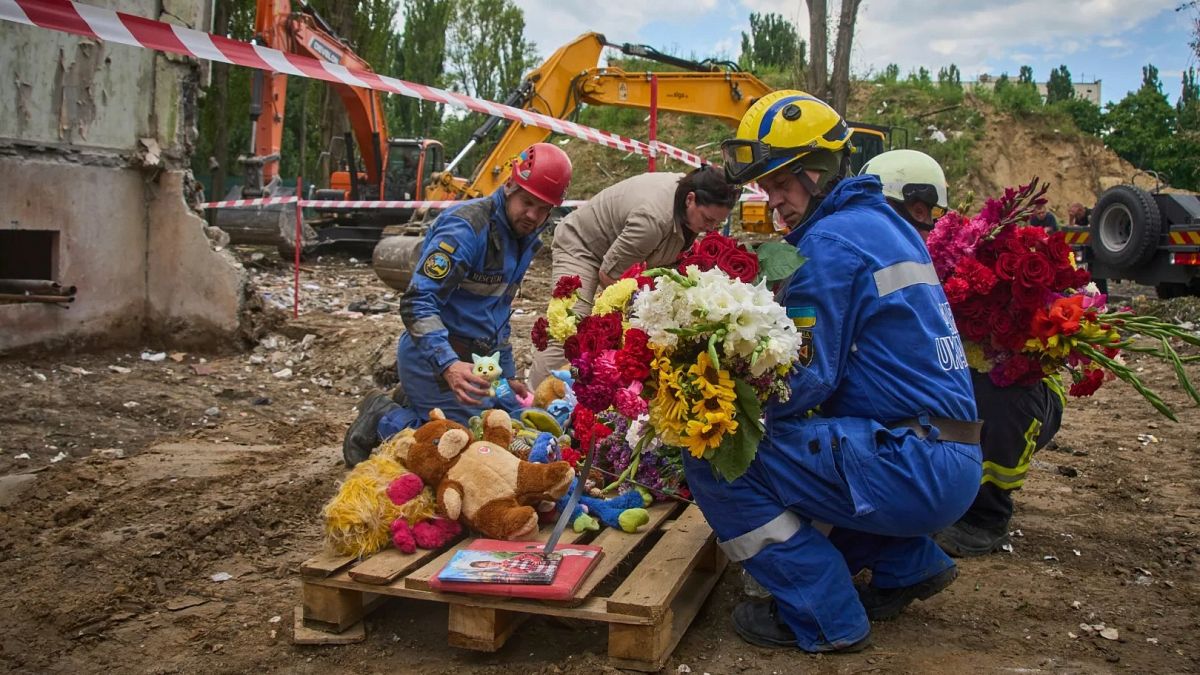

In the midst of ongoing global challenges, diplomatic efforts continue to shape international relations and address pressing humanitarian concerns. As tensions persist between Russia and Ukraine, the international community remains vigilant in promoting dialogue and stability. In parallel, leaders in Europe are confronting the complexities of migration flows, while efforts to recognize and support Palestinian statehood gain momentum.
In Ukraine, the resilience of the people is palpable even as the nation observes a day of mourning. The somber occasion follows a string of missile and drone strikes that resulted in the loss of 31 lives, including that of a young child. Ukrainian President Volodymyr Zelenskyy expressed deep sorrow over the tragedy, emphasizing the devastating impact on families and communities, particularly children. The strikes serve as a poignant reminder of the enduring human cost and the urgent need for peace.
This backdrop sets the stage for diplomatic overtures, as Zelenskyy reiterates Ukraine’s readiness to engage in direct discussions with Russian President Vladimir Putin. Zelenskyy’s appeal for dialogue speaks to a desire for genuine peace negotiations, yet the path forward hinges on Russia’s willingness to meet this earnest call. As Russian President Putin articulates a vision for “lasting and stable peace,” the absence of concessions remains a significant hurdle. The world watches closely, hopeful for a breakthrough that prioritizes the well-being of both nations’ citizens.
Away from the conflict, attention turns to the Mediterranean region where migration continues to be a focal point of international concern. Notably, Italy, Turkey, and Libya are engaging in strategic dialogues to manage migration flows into Europe. Historical data from the United Nations Refugee Agency highlights a marked increase in crossings, underscoring the complex humanitarian and logistical challenges faced by these nations. By fostering collaboration, these countries aim to establish policies that respect human rights and address the root causes of migration.
Further afield, French President Emmanuel Macron is championing a cause that holds deep historical significance for the Palestinian people. Recent developments have seen France take concrete steps toward supporting Palestinian state recognition, a move that resonates with advocates of lasting peace and justice in the region. While symbolic statehood does not immediately alleviate the economic hardships faced by Palestinian communities, it represents a crucial gesture toward acknowledging their enduring aspirations for sovereignty and self-determination.
The convergence of these dialogues illustrates a global tapestry woven with hopes for peace, security, and dignity. Leaders across continents are tasked with navigating these complex issues, balancing the urgency of immediate needs with the long-term vision required to foster stability and harmony. As the world continues to grapple with these interlinked challenges, there is a shared aspiration for diplomatic processes that engender mutual respect and understanding.
As international eyes focus on these evolving situations, there is a collective yearning for peace, pragmatic solutions, and meaningful engagements that transcend political borders. The path may be fraught with challenges, but the determination to transform dialogues into tangible outcomes remains steadfast, marking a hopeful stride toward a more harmonious global landscape.
Source: {link}
